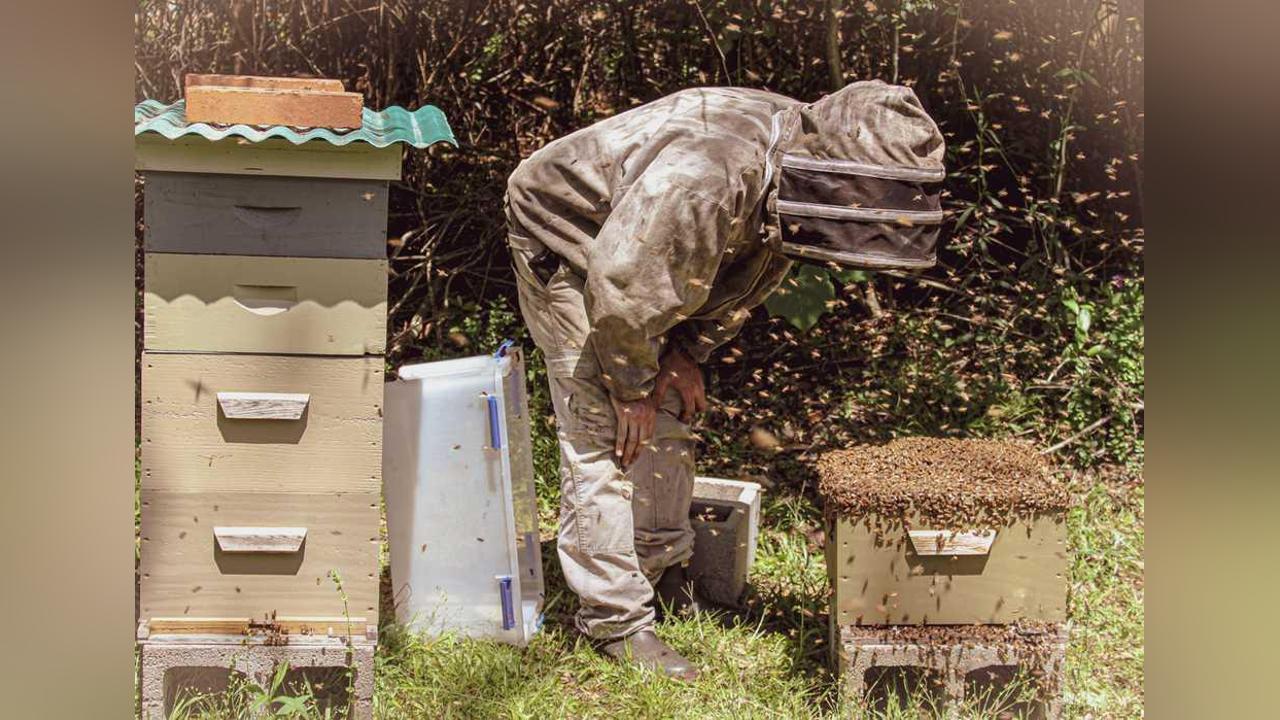Africa-Press – Eswatini. Beekeepers in Eswatini are shifting their business strategies as they navigate barriers in the formal retail market.
Industry leaders revealed that many farmers are now capitalizing on informal market sales due to misconceptions about crystallized honey.
Vice Chairperson of the Bee Industry Interim Committee, Vusi Nkambule, explained that retailers often reject crystallized honey, mistakenly believing it to be spoiled.
He noted that this misconception had led to a preference for syrup-based honey products, which contain only 20% real honey.
Nkambule reportedly urged farmers to gradually transition into formal markets by establishing banking histories and securing financial support.
He emphasized the need for consumer education to address misinformation and boost demand for locally produced honey.
Currently, Eswatini has approximately 1,000 beekeepers, with most supplying the informal sector.
However, reports indicate that industry players are exploring ways to formalize their operations and tap into larger retail opportunities.
Several companies, including Ubuntu Honey, Africa Works, and Tsawela Honey, have been identified as key processors of local honey, creating a potential pathway for beekeepers to scale their businesses.
Despite past challenges such as theft and limited management skills industry experts noted that the sector had seen improved performance over the past year.
Nkambule also revealed plans to showcase local honey products at the upcoming Luju Festival, a move expected to increase market visibility and consumer appreciation.
An analytical study on small-scale beekeeping in Eswatini found that while some farmers earn more than E10, 000 per month, the majority still generate between E1, 001 and E250.
Looking forward, industry experts suggest that both the government and the private sector must collaborate to formulate and implement strategies that empower beekeepers.
“Government support in the form of subsidies and access to extension services is crucial to scaling up the industry,” said Nkambule.
Additionally, industry leaders are calling for more strategic partnerships and community-based initiatives to educate consumers about the benefits of buying local honey, particularly as a means to support sustainable agriculture and stimulate economic growth in the country.
Business Takeaways:
Market Adaptation: Beekeepers are adapting to challenges by focusing on informal market channels due to misconceptions about crystallized honey.
Financial Growth: Establishing banking histories and accessing loans are critical steps for beekeepers aiming to formalize their businesses and expand into larger retail spaces.
Industry Expansion: Opportunities like the Luju Festival are helping raise the profile of Eswatini’s honey industry, increasing its chances of entering formal markets.
Strategic Investments: The push for financial support, technical training, and digital technology is essential to help beekeepers improve productivity and broaden their reach.
Educational Campaigns: More widespread consumer education is needed to debunk the myth that crystallized honey is spoiled, potentially increasing demand for locally produced honey.
Investment in Technology: Digital tools could enhance production and marketing efforts, providing a competitive edge to local beekeepers in the formal market.
Targeted Support Programs: Expanding access to financial and technical support for beekeepers will be key to helping them transition from the informal sector to more profitable retail and international markets.
For More News And Analysis About Eswatini Follow Africa-Press







